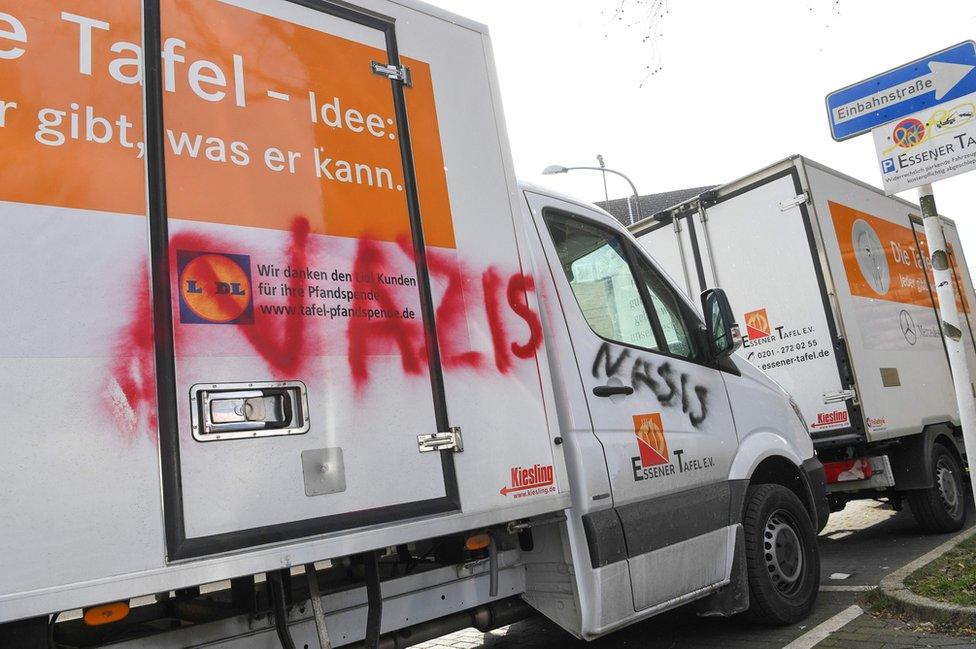Chancellor Merkel enters 'Germans only' food bank furore
- Published

Police are trying to find out who sprayed "Nazis" graffiti on the vans
German Chancellor Angela Merkel is the latest politician to criticise a major food bank's decision to bar foreigners from receiving free food.
The charity Essener Tafel called it a temporary restriction necessary because the share of foreigners using the food bank had soared to 75% in recent years.
The charity says it helps about 16,000 poor people in Essen, a city in the western industrial Ruhr region.
Vandals have sprayed "Nazis" on the charity's delivery vans.
Foreigners registered for the handouts before Essener Tafel's new rule took effect last month can still use the food bank.
Mrs Merkel spoke out against the requirement to show a German passport in order to receive food.
"One shouldn't run services on the basis of such categorisations. That's not good. But it also shows the amount of pressure there is, and how many people are needy. That's why I hope they can find good solutions which do not exclude groups," Mrs Merkel told the broadcaster RTL.
Migrant influx
An estimated 1.2 million asylum seekers entered Germany during the migrant crisis of 2015-2016, more than half from war-torn Syria, Iraq and Afghanistan. The record influx boosted support for the anti-immigration Alternative for Germany (AfD) party.
Essener Tafel is part of a national food bank group called Tafel. Essen is part of Germany's old coal-and-steel hub in North Rhine-Westphalia (NRW) state.
, saying "if you fight back, you're a Nazi".
Essener Tafel's centre - it has smaller outlets across the city
Like hundreds of other German food banks, Essener Tafel collects tonnes of surplus food at or past its sell-by date, which would otherwise be thrown away.
The charity's managers are holding an emergency meeting to tackle the row over its new policy, which took effect last month.
Read more on migrant tensions in Europe:
Essener Tafel head Jƶrg Sartor spoke angrily about the criticism. "A load of politicians are laying into us now - but they are ill-informed. They ought to reciprocate and help out here - after that they can voice an opinion, by all means."
He defended his staff and said he was "sick and tired" of the criticism. "I'm almost ready to quit," he said.
Earlier, he said the restriction had nothing to do with xenophobia; he said it was all about fairness, because large numbers of elderly women and single mothers had stopped coming to Essener Tafel.
among the German states.
In January NRW handled 19.9% of claims, followed by Bavaria (15.1%).
Asylum claims in Germany soared to a record 745,545 in 2016, but fell back to 222,683 in 2017.
A new EU border agreement with Turkey, and new border fences, drastically cut the numbers of migrants heading to Central Europe via the Balkan route.